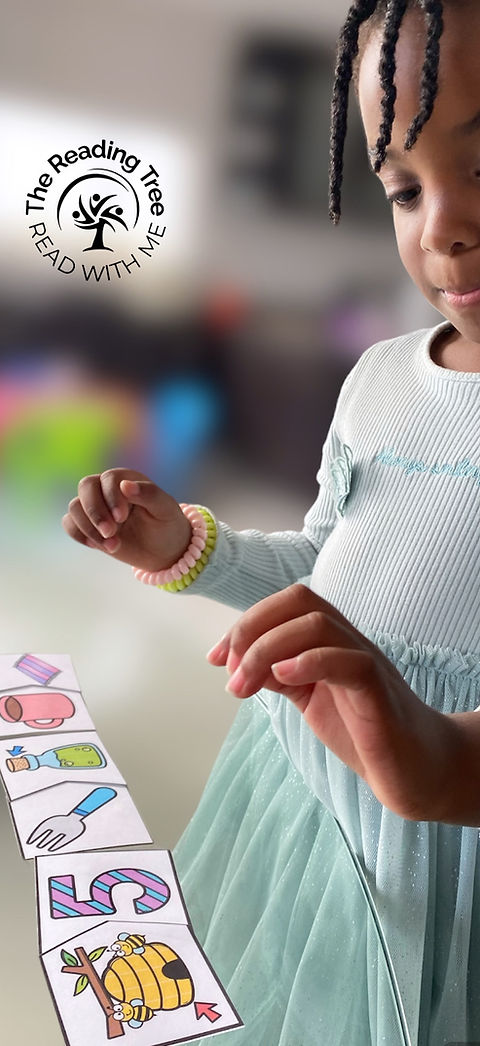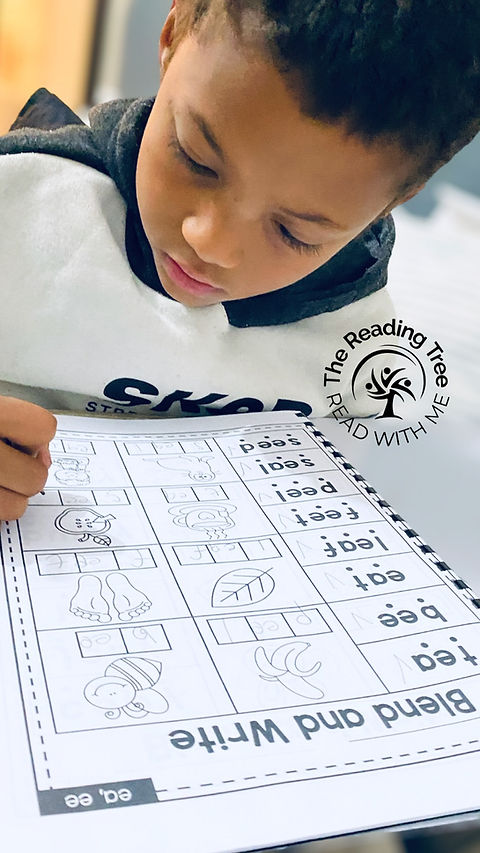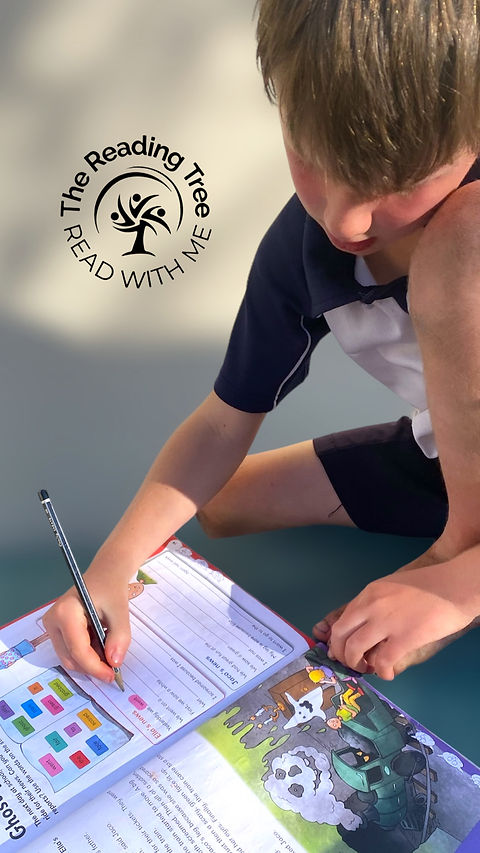Course Information
Guidance Every Step of the Way

Foundation Phonics
Learning to Hear is the First Step to Learning to Read.
The Reading Tree program lays the foundations of reading. It introduces children to skills that they will use throughout their reading journey.
The activities in the Foundation Phonics Stage are specific, targeted and can be used throughout a child's reading journey. The resources are appropriate and flexible enough to adapt to any child's age, needs and abilities.
We focus on phonological awareness because hearing is truly the foundation to reading.
Our instructions are targeted, explicit and effective.
Children thrive during this stage, so this is where confidence is built.
This stage is appropriate for pre-readers, new readers and struggling readers.
Advanced Phonics
Comprehension
Once the foundation has been laid, we build on and structure the rest of the reading journey on it. This extends to the advanced sounds too.
During the Advanced Phonics Stage, children learn how two letters can make various sounds, they begin to understand why certain words are read in a particular way and they apply the rules that they have learned during the Foundation Phonics Stage.
This stage is suitable for children who are struggling to read big words, have completed the Foundation Phonics Stage, or who struggle with writing.
Children as young as 4-years-old can do, and have done this stage. This is the stage where struggling readers in particular flourish!


Guided Reading & Writing
“The more that you read, the more things you will know. The more that you learn, the more places you'll go.” ― Dr. Seuss
During the Guided Reading & Writing Stage, children apply what they have learned in the Foundation Phonics and Advanced Phonics Stages.
This is where the rules learned during their reading journey is translated into writing.
Children who have worked through the Guided Reading Stage are more independent and can be guided by the knowledge they have gainedpreviously.
The Guided Reading Stage introduces the rules of language. It also explores concepts such as sentence structure, grammar and correct vocabulary.
This stage is appropriate for children of school going age and struggling readers as it translates the reading skills learned into writing.